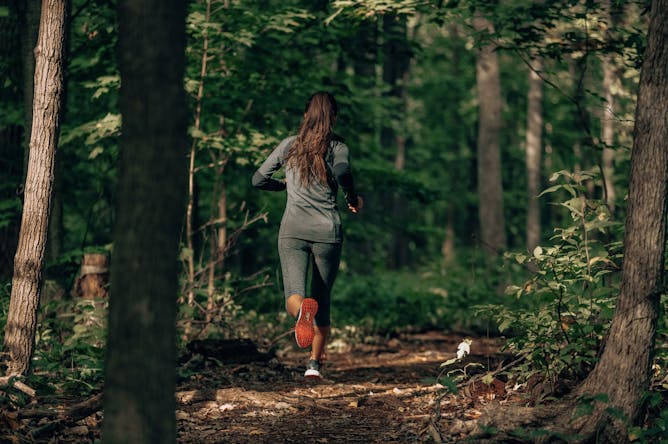|
The figure of the cruel, authoritarian nun has become almost a caricature in popular culture. But the author of our latest Insights long read spoke to a group of former nuns who took their vows in the early 1950s, when the rules governing convent life were at their strictest. The women’s stories offer a glimpse into a way of life that no longer exists.
Some were as young as 13 when they entered the convent, with hopes of making a better life for themselves. Instead, they were manipulated, brainwashed and abused – their cries for help met with threats of eternal damnation. As one former nun says: “The idea of being unfaithful to your vocation was a step on the way to hell. It would be a mortal sin.”
Elsewhere, we look into new evidence linking higher pain tolerance to exercise. It turns out there are many physiological and psychological reasons why exercise may boost our pain tolerance, and it may help chronic pain too.
And when Liz Truss announced her disastrous budget last year, it prompted a meltdown in government bonds that threatened the UK’s pension funds. So how concerned should we be now that bond prices are back to similar near-crisis levels? An expert offers his view.
In the first month of our campaign we've raised 74% of our donations target – huge thanks to those who have donated so far. If you're haven't yet and are able to support The Conversation's public interest, independent, expert journalism, please donate today.
Donate
|

|
Paul Keaveny
Investigations Editor
|
|

Shutterstock/Thoom
Karen Hanrahan, University of Brighton
Brainwashed, fearful and abused: convent life worked to erase a sense of individual identity through adherence to strict rules.
|

The most active participants had the highest pain tolerance overall.
Maridav/ Shutterstock
Nils Niederstrasser, University of Portsmouth
There are many physiological and psychological reasons why exercise may boost our pain tolerance.
|

Heading for the buffers? Bank of England Governor Andrew Bailey.
UPI
David McMillan, University of Stirling
UK bonds are again close to the levels that caused a pensions crisis in autumn 2022.
|
Politics + Society
|
-
Alex Balch, University of Liverpool
After Brexit, the UK has had fewer migrants from the EU, but they have been far outstripped by people coming from elsewhere.
-
André Carvalho, King's College London; Anurag Mishra, Jawaharlal Nehru University ; Zeno Leoni, King's College London
Love him or hate him, you can’t ignore the importance of Henry Kissinger’s legacy in government and as a public intellectual.
-
Merve Sancak, Loughborough University
President Erdoğan has been hoping his government’s science wins would spark a wave of patriotic support.
-
Rob McNeil, University of Oxford
Net migration numbers tell us little about the effectiveness of migration policy.
-
Geoffrey Swenson, City, University of London
After 400 years of Portuguese colonial rule and decades of hostile occupation by Indonesia, Timor-Leste is a flourishing stable democracy.
|
|
Arts + Culture
|
-
Blane Savage, University of the West of Scotland
Painting with renewed purpose at 65, Peter Howson has overcome his demons to take his place as one of Britain’s leading contemporary artists.
-
Anistatia Renard Miller, University of Bristol
If your beer has no foam you could end up with terrible bloat.
-
Freya Jarman, University of Liverpool
Her music can be found on dad rock compilations and on the set lists at drag nights.
|
|
Business + Economy
|
-
Martin Spring, Lancaster University
ChatGPT may change the workplace but there are plenty of other disruptions coming.
-
Tom Stacey, Anglia Ruskin University
One new battery plant is unlikely to save the UK auto industry, but it’s a step in the right direction.
|
|
Health
|
-
Jen Southcombe, University of Oxford; Nura Fitnat Topbas Selcuki, University of Oxford
Adenomyosis can be debilitating, causing symptoms including irregular and heavy periods and pelvic pain.
|
|
Science + Technology
|
-
Katie Field, University of Sheffield; Silvia Pressel, Natural History Museum
Take a moment to consider the natural beauty of mosses – and their history as some of the most intrepid explorers in Earth’s history.
|
|
|
|
| |
|
|
|
|
| |
| |
| |
| |
| |
|
|